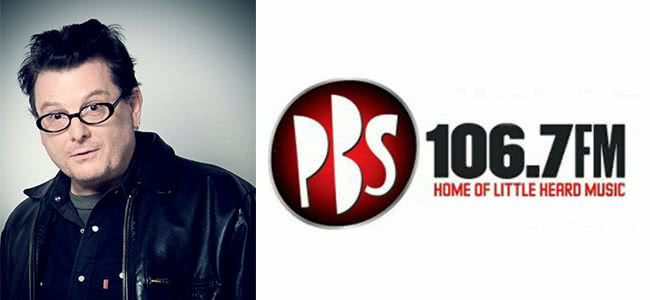Let’s start from the beginning, do you remember the first time you first heard radio?
As a kid growing up the first time i heard the radio was in my dad’s car in the 70s, and the song that stuck in my head was ” L.A. INTERNATIONAL AIRPORT ” by Susan Raye . It was tuned into one of the commercial stations here in Melbourne, way before public radio was even thought of!
When did the musical obsession begin? What did it stem from?
My school friend at the time Leon Richardson put me onto punk in the late 70’s , i quickly sold all my 70’s metal records and commercial shit and remember tuning into 3RRR and hearing BODHAN X playing the sex pistols , this is before PBS started broadcasting . I was hooked on punk rock from then on.
What was your first experience working in radio?
Again my friend Leon at the time was running the student union radio station at Caulfield Institute Of Technology, and I hung out there at nights DJing in the studio .
How did you first get involved with PBS?
I went down to the Prince Of Wales Hotel in St .Kilda one night to a meeting at PBS. At the time PBS was broadcasting from the back rooms at The Prince , and after the meeting I asked if I could do a radio show, that was early 1980, PBS started broadcasting in December 1979 . In September 1980 I presented my first show, midnight to 2.00am in the morning.
After twenty years, what would have to change for you to consider leaving?
Since I’ve been with PBS now for 32 years, I consider myself a LIFER, I am in it for the long haul , I think John Peel did 40 years with the BBC , I’ll try and break that record !
What do you think the fate of radio is going to be, with people being able to craft their own playlists at will?
With so much electronic media around these days, and downloads etc . I think radio has never been stronger and more important especially public radio, and Melbourne has such great alternative radio, it’s the life blood of the music community. By supporting live bands and alternative unsigned bands , if you want to know what’s happening on the live front with great Australian bands you can tune into pbs and across all music genres and its there for you to access
What do you think separates PBS from other community radio stations?
PBS is a music station first and foremost . We play music 24 / 7, that’s what we are into. I think our listeners have by now keyed into that and its music, music , music .
With Royal Headache starting to make waves in America, what do you think the future of Australia’s punk and garage scene looks like?
I love Royal Headache, I call them and other garage / punk bands from Australia the post Eddy Current happening. Australia has always had a fantastic punk scene going way back to 1976 with the Saints , Radio Birdman , onto the Scientists ,the Birthday Party , Beasts Of Bourbon , Drones , and new bands coming though like Woollen kits . The yanks have always been into what’s happening from Australia , just look at the current playlists from the maximum rock ‘n’ roll radio shows , so much aussie stuff played both old and new bands . Aussie punk is especially popular in Europe and Japan always has been. The scene here for Australian bands has never been stronger with so many great bands forming and releasing vinyl records now, it’s crazy.
What do you think the most important role of a radio presenter is?
To inform the listener about what you’re playing and play great stuff, present the best possible radio show you can do, and be totally into it .
What’s the best part about being a part of the Melbourne music community?
The Melbourne music community has such great people and talent in it, it would be a real pity if we lost PBS as an informative voice in the community, please support the Radio Festival from May 14 – 27th by becoming a member on 84151067 or www.pbsfm.org.au

































